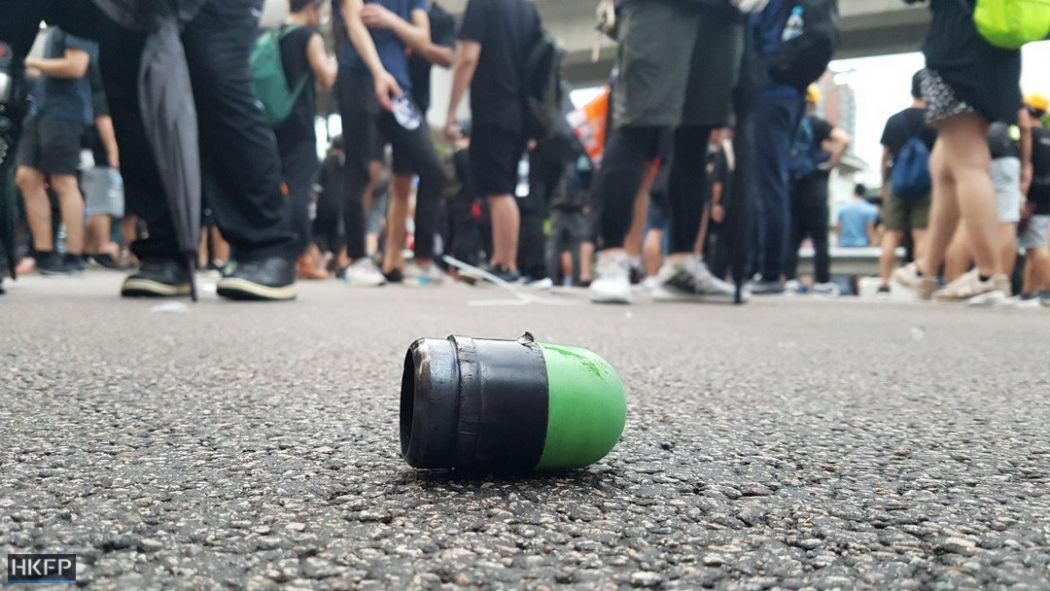A Hong Kong reporter who was allegedly shot at with a police projectile during a protest in 2019 has expressed disappointment that his complaint was rejected.

Raymond Yeung, who at the time of the alleged incident was working at Commercial Radio, wrote in a Facebook post on Monday that the Independent Police Complaints Council (IPCC) had concluded that there was insufficient evidence to support his accusation of excessive use of force.
The Complaints Against Police Office (CAPO) shot down Yeung’s complaint in August. After he requested a review, the IPCC upheld CAPO’s decision.
Complaints against the city’s police are processed via a two-tier system, with CAPO – which operates under the Hong Kong Police Force – conducting initial investigations and the IPCC reviewing CAPO’s investigation report.
While the IPCC labels itself an independent statutory body, all of its members are appointed by the chief executive.

Police use of force also came under scrutiny during the 2019 protests. An investigation by the IPCC concluded that officers generally acted within guidelines but there was “room for improvement.”
Use of force ‘not unreasonable’
The alleged incident occurred at a protest in Mong Kok on November 16, 2019, when demonstrators had gathered in the commercial district. At the time, the city was months into unrest sparked by a controversial extradition bill that would have allowed fugitives to stand trial in mainland China.
Footage shared by Commercial Radio showed riot police demanding that all reporters leave the scene. After an officer pushed a reporter, the reporter read out the officer’s operational call sign – an identifying code – before running off. A loud bang is then heard as an officer fires a projectile towards his back.
According to Yeung, the IPCC said clips showed that the reporter had charged forward and touched the officer’s hand, and that the use of force was “not unreasonable.”

Yeung, however, said this was untrue. He said that night, he saw an officer pushing the phone tripod of somebody wearing a reflective reporter’s vest and attempting to pull their gas mask.
“I thought this was inappropriate, so I moved forward to film the officer’s operational call sign,” he said.
“So that shaky footage does not get in the way of reading the sign, I pointed at the officer’s operational call sign and read out the code,” Yeung added. “At the time, the officer’s hand came in contact with my arm.”
Yeung said the police officer’s firing of the sponge grenade ran counter to the force’s principles to use only minimum force as appropriate, and to not obstruct the work of the media.
Police said after the incident that it was looking into it and that the officer involved had been placed on leave. Media watchdog the Hong Kong Journalists Association strongly condemned the officer’s actions, calling on authorities to ensure that press freedom is upheld.
In his Facebook post, Yeung said he understood that police officers face difficulties in their line of duty.
“But the mission of media [outlets] is to defend the truth… so I hoped to clarify what happened… to the public and urge improvements.”
Support HKFP | Policies & Ethics | Error/typo? | Contact Us | Newsletter | Transparency & Annual Report | Apps
Help safeguard press freedom & keep HKFP free for all readers by supporting our team

LATEST FROM HKFP
HKFP has an impartial stance, transparent funding, and balanced coverage guided by an Ethics Code and Corrections Policy.
Support press freedom & help us surpass 1,000 monthly Patrons: 100% independent, governed by an ethics code & not-for-profit.










